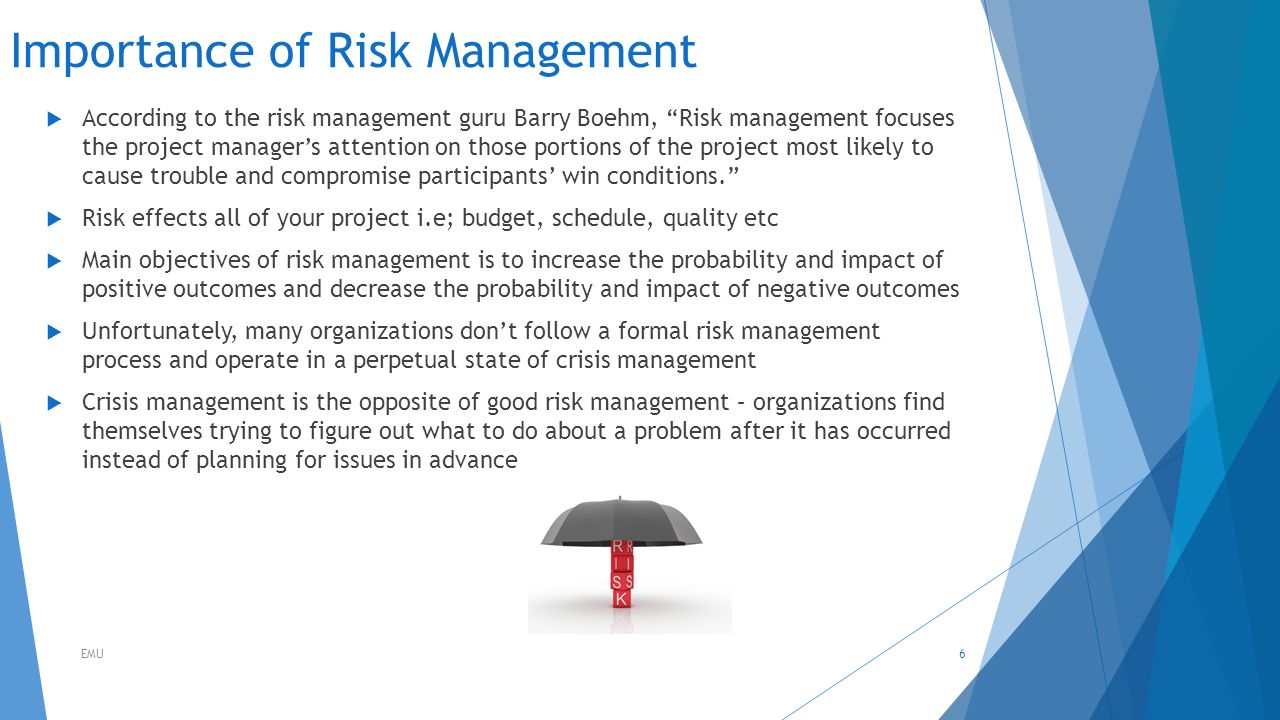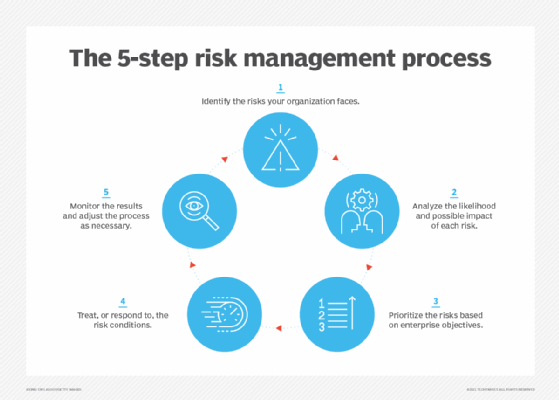The Rising Importance of Risk Management in Health and Safety
Recognizing the Value of Risk Management in Service Success and Sustainability
In today's ever-evolving organization landscape, the value of Risk Management can not be understated. It stands as a crucial pillar, bolstering company success and sustainability amidst a sea of unpredictabilities. By recognizing and mitigating potential risks, companies protect their capital, foster resilience, and improve public trust. Similarly, it leads the way for innovation and development. Let's unpack this facility topic, exploring exactly how proactive Risk Management adds to the durability and success of companies.
The Principle of Risk Management in Organization
Risk Management, a fundamental aspect of company operations, lugs a significant weight in the success or failing of a business. Businesses employ Risk Management treatments to reduce the unfavorable effects of these threats. The concept of Risk Management is not a guarantee versus Risk, yet instead a crucial device that advertises functional effectiveness and durability in face of unpredictability.
Crucial element of a Robust Risk Management Strategy
Building a robust Risk Management approach entails a number of crucial elements. Identification of possible dangers is the primary step, followed by an extensive analysis of these threats. After recognizing the gravity of the dangers, proper procedures should be prepared for Risk mitigation. These actions can vary from diversification of sources to insurance policy coverage. An effective Risk Management strategy also entails consistent tracking and testimonial of the determined dangers and the efficiency of the control measures. The method ought to be flexible sufficient to accommodate adjustments in business environment. Additionally, the approach ought to additionally include training of the staff members to deal with unanticipated circumstances. All these elements, when combined successfully, add to a robust Risk Management method.
How Risk Management Adds To Business Success

Situation Studies: Successful Risk Management in Practice

Future Fads in Risk Management and Their Effects for Companies
As the global service landscape remains to develop, so also does click to find out more the area of Risk Management. Future fads suggest a shift in the direction of aggressive as opposed to responsive strategies, with organizations increasingly looking for to determine and reduce dangers prior to they occur. The consolidation of modern technology, specifically AI and large data analytics, will certainly play a pivotal function in this change. These tools can supply real-time insights, making it possible for swift and notified decision-making. Moreover, ecological, social, and administration (ESG) risks are forecasted to increase in importance, showing a growing societal issue for sustainability. Companies that adapt to these trends and incorporate them into their Risk Management strategies will likely be better geared up Click This Link for success and sustainability in the unsure future.

Verdict
In final thought, understanding the importance of Risk Management is critical for service sustainability and success. Proactive recognition, assessment, and reduction of prospective threats not only safeguards funding and revenues, but likewise cultivates resilience. Efficient Risk Management strategies boost functional performance, consumer depend on, and advancement. Via real-world instance research studies and future patterns, it's noticeable that a durable method to take the chance like it of Management is paramount in navigating today's complicated business environment.
Companies utilize Risk Management procedures to minimize the negative impacts of these dangers. The concept of Risk Management is not a warranty against Risk, however instead a crucial device that advertises operational efficiency and strength in face of unpredictability.
Recognition of possible threats is the primary step, followed by a detailed evaluation of these dangers (importance of risk management). After understanding the gravity of the dangers, appropriate actions should be planned for Risk mitigation. An efficient Risk Management technique likewise entails constant surveillance and testimonial of the recognized threats and the performance of the control actions